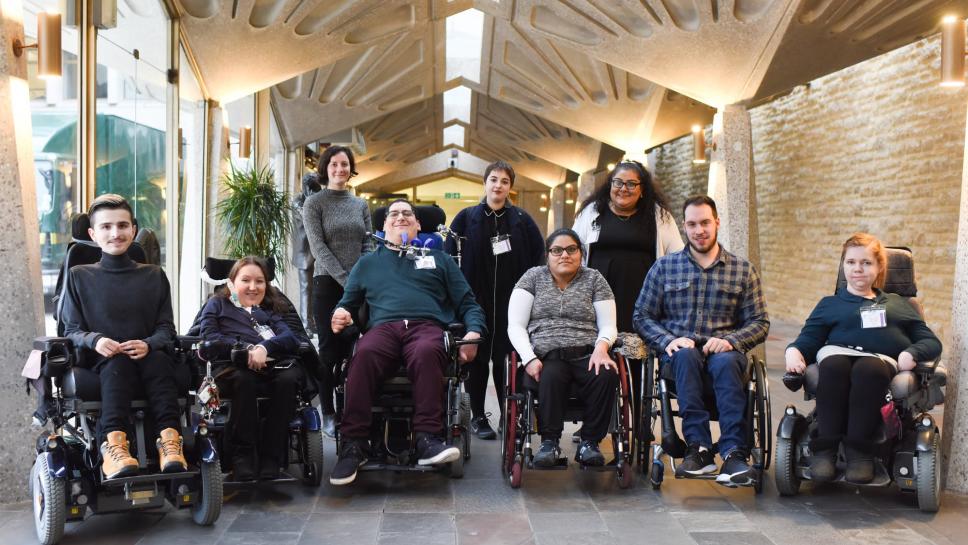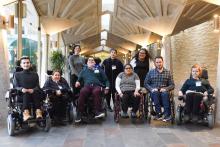
The survey found that:
- Only 3% of UK adults think all tourist attractions provide easy access for wheelchair users
- Only 11% of UK adults think all Premier League grounds provide easy access for wheelchair users
- Only 6% of UK adults think all UK railway stations provide easy access for wheelchair users
The advance of disability rights has been reliant on campaigning by organisations such as Trailblazers – and remains a patchwork of successes and work yet to be done. For example, while more railway stations now provide step-free access, half of stations remain inaccessible and assistance often needs to be pre-booked. There remain issues with staffing support, onboard toilets and making vital services like ticket machines accessible across much of the country.
Lauren West, Trailblazers Manager at Muscular Dystrophy UK, said:
We are so proud of the hard-won results that our Trailblazers have achieved in the last decade, and it’s encouraging that members of the public recognise the difficulties disabled people face when it comes to accessibility. But the headline successes should not leave people under the impression that the UK is now fully accessible.
Take Premier League stadium access. It’s only after years of work by disability groups like Trailblazers that we are finally seeing clubs providing enough space for wheelchair users. But even that achievement just covers topflight clubs on one measure, and we still hear from disabled fans who have to sit away from friends or families, or even with the opposing team.
We know it can be complex – the good practice guide on accessible stadiums is 116 pages long. But working with groups like Trailblazers is essential if businesses and organisations want to make sure they are open to everyone. Today we celebrate our achievements but now we want to hear from the next generation of young disabled people to help us tackle the next decade of advancing our rights.
Since its launch in 2008, Trailblazers’ achievements include:
- Lobbying Twitter to update its rules to protect disabled people from hate speech. The social media giant went on to introduce the measures called for by Trailblazers
- Launching a report on accessible gaming and trialling Microsoft’s new adaptive controller for XBox
- Fighting for accessible public transport in two End of the Line reports – published in 2009 and 2016 – which resulted in the government announcing new measures in early 2018 to ensure wheelchair users can access buses.
Trailblazer Connor Colhoun, 21, from Glasgow, said:
I’ve been to theme parks, and although it’s not usually possible to go on the rides, they do cater for wheelchair users. Things are definitely improving for disabled tourists, and accessibility is much better now than it used to be; I think that must be because there is more awareness. I recently went on the Harry Potter Warner Bros. Studio Tour, and it was excellent – everything was so accessible.
2,134 people surveyed, 4-5 July 2018, in Muscular Dystrophy UK-commissioned survey by YouGov

